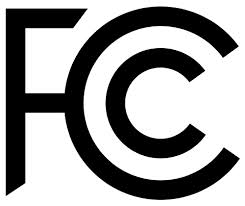 Protestors gathered on May 15 in front of the Federal Communications Commission’s (FCC) D.C. headquarters, hoisting banners demanding the commissioners “Save the Internet.” But the vote that day advanced a proposal fiercely opposed by many consumers and Silicon Valley companies as a threat to net neutrality. The FCC finds itself at the center of the current storm as the independent federal agency charged with regulating interstate and international communications by radio, television, wire, satellite and cable. Besides leasing 450,000 SF in the Portals building on 12th Street, N.W., the agency has 3 regional offices (Chicago, Kansas City and San Francisco), 16 district offices and 8 resident agent offices around the country. Its FY 2015 requested budget is $375,380,313, with a projected full time equivalent staff of 1,790 (55 FTEs more than currently employed).
Protestors gathered on May 15 in front of the Federal Communications Commission’s (FCC) D.C. headquarters, hoisting banners demanding the commissioners “Save the Internet.” But the vote that day advanced a proposal fiercely opposed by many consumers and Silicon Valley companies as a threat to net neutrality. The FCC finds itself at the center of the current storm as the independent federal agency charged with regulating interstate and international communications by radio, television, wire, satellite and cable. Besides leasing 450,000 SF in the Portals building on 12th Street, N.W., the agency has 3 regional offices (Chicago, Kansas City and San Francisco), 16 district offices and 8 resident agent offices around the country. Its FY 2015 requested budget is $375,380,313, with a projected full time equivalent staff of 1,790 (55 FTEs more than currently employed).
As Commerce Secretary in the 1920s, Herbert Hoover’s responsibilities included radio regulation under the Radio Act of 1912. But chaos ensued because the laws did not allow denial of radio licenses to anyone; too many stations soon crowded too few frequencies. The Radio Act of 1927 sought to bring order by establishing a Federal Radio Commission (FRC) guided by five commissioners empowered to bestow or deny licenses. In the early 1930s, broadcasting companies fought for dominance in now-regulated markets, First Amendment activists complained about crackdowns on vulgar language and new television technologies grew in importance. To handle growing conflicts, Congress passed the Communications Act of 1934. It abolished the FRC and replaced it with the FCC, which was also granted jurisdiction over telephone and telegraph communications. The 1934 act specified the FCC’s purpose: to provide the U.S. public with “rapid, efficient, Nation-wide, and world-wide wire and radio communication services with adequate facilities at reasonable charges,” while also protecting national security and public safety and property. More recent federal legislation affecting the FCC includes the Telecommunications Act of 1996 and the Broadcast Decency Enforcement Act of 2005.
Five commissioners appointed by the president and confirmed by the Senate direct the FCC. Seven bureaus process license applications, analyze consumer and industry complaints, develop and implement regulations, conduct investigations and organize hearings. The FCC’s Strategic Plan for 2014–2018 summarizes the tasks of each bureau and 10 offices.
Strategic goals identified in the document include:
- Maximize American’s access to affordable fixed and mobile broadband;
- Ensure consumers have tools and information to make informed choices about communications services;
- Promote competitive market for communications and media services to foster innovation, investment and job creation; and
- Protect public safety and Homeland Security through reliable, interoperable, redundant and rapidly restorable critical communications infrastructures.
Appointed by President Obama and confirmed unanimously by the Senate, Tom Wheeler became FCC chairman on November 4, 2013. Critics questioned Wheeler’s close ties to industry as a lobbyist for the cable and wireless industries, and their concerns heightened when Wheeler proposed rules that could allow content providers to pay broadband companies for faster and more reliable delivery. Protestors assert the new rules would compromise free access on the Internet, resulting in a two-tier, have and have-not system. Some are urging the agency to reclassify Internet providers as public utilities, while others seek to maintain the current rules supporting equal access for all. The May 15 vote split along party lines, with the chairman and two Democratic commissioners voting for the proposal, and both Republican commissioners voting in opposition. Even the other two Democrats heading the FCC continue to question Wheeler’s proposal and welcome public feedback from the ongoing comment period. Commissioner Mignon Clyburn said in a Reuters article on May 15, “The real call to action begins after the vote today.”
